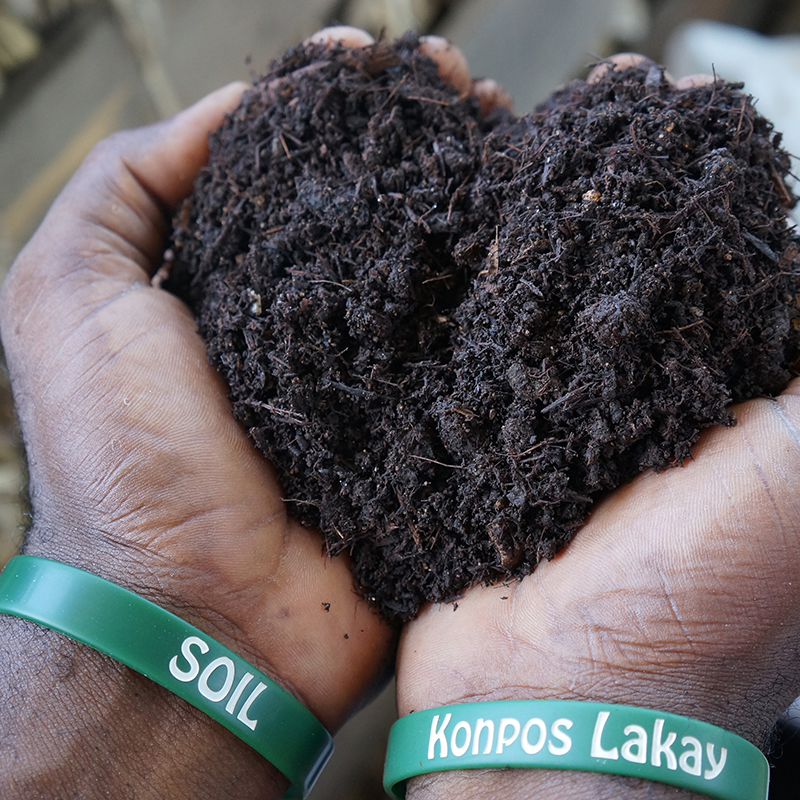
SOIL is not just about poop — it is about people
By AdministratorSoil is a product that we often take for granted. It is largely present here in the United States, and it is necessary our farming and food structure. However, in the developing world, healthy soil is not prevalent, leading to a host of problems. Next time you walk by your bathroom, take a peek at your toilet. The waste from your toilet leaves your house with water and goes somewhere to be treated, using resources that are precious in many places where water is not readily available. Without wastewater treatment facilities, you end up with contamination from waste and poor soil. However, there is a wonderful, creative, technical way that SOIL in Haiti is addressing this issue.
However, SOIL is mostly about people. Who are the people of SOIL? Most employees working in Haiti are local residents. They are proud of their work and happy for a job with an honest company. The communities that SOIL works in are poor, but many also have a reputation for being dangerous and dirty. Community organizers have worked hard to bring nonprofit and art groups that are working to improve cities such as Cité Soleil. The Fwa LaDiferans fair, for example, helps creates a stronger community with long-lasting benefits for city residents.
The Haiti School Project has caught the SOIL fever. They are coordinating with SOIL to create a composting and waste collection facility for the Foyer Divin School and some local residents. Teachers noted that many students from poor farming families had been unable to pay their tuition—because of the high cost of fertilizer, farmers have experienced low yields. While the school’s composting toilets won’t create enough compost to supply all of these families, the project organizers hope this effort will raise awareness about how beneficial compost can be.
SOIL impacts not only a community, but also individuals. Many SOIL employees see opportunities to improve their current situation. One employee meets with a native English speaker working with SOIL. He teachers her Haitian Creole, and she teaches him English, and they discuss plans and life over lunch. This relationship would be a story enough, but there is more: He clearly outlines how important Haitian agriculture is to the country. By raising productivity, Haiti can increase its GDP. Because of his experience working with his family’s farm, he has hands-on experience. When he went to high school, he further developed his understanding of agriculture through science experiments and in-depth learning. He is particularly concerned that the Dominican Republic, which has a more established agricultural base, often exploits Haitian employees. This man’s dreams did not start with his job with SOIL, but with SOIL the dreams find fertile ground.
SOIL isn’t just about waste management. It is about the people who run the engine to keep the organization operating and successful.
